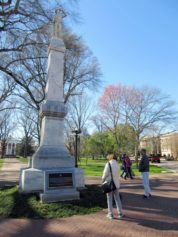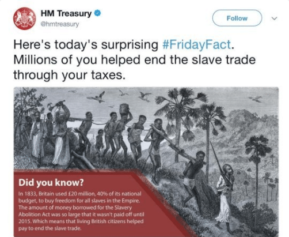White tourists visit a Southern slave plantation and ask the tour guide questions. What could possibly go wrong?
The questions reveal a great deal about white attitudes, denial and ignorance about racism and America’s troubling legacy of slavery, which have come to the forefront in the recent debates, discussions and acts of racial violence in which the Confederate flag has been implicated.
In a revealing account on Vox, Margarte Biser, a white woman who was until very recently a guide on an old plantation, which during the Antebellum days enslaved 100 Black people, had some interesting stories to share.
According to Biser, many of the predominantly white tourists who visited the plantation were not accustomed to discussions about slavery when visiting such sites, and often had quaint, distorted notions of benevolent paternalistic masters who cared for their happy slaves.
“Listen, I just wanted to say that dragging all this slavery stuff up again is bringing down America,” one man once told Biser.
In addition, she often received questions and comments such as this:
“Did the slaves here appreciate the care they got from their mistress?”
“These were house slaves, so they must have had a pretty all right life, right?”
“Well, you know they [Irish, Polish, Jews, etc.] had it almost as bad as/just as bad as/much worse than slaves did.”
“If you think about it economically, they don’t work as hard if you don’t feed ’em!”
“Were they loyal? They gave ’em food. Gave ’em a place to live.”
Such narratives are pathological, as they downplay or even ignore the reality of uprisings and the slave patrols, including the police state legal apparatus that was constructed to keep slaves in line and on the plantation. Moreover, such discussions and whitewashing of history absolve these white folks and their ancestors of any guilt. Further, it allows them to change the subject and not even begin to address the monsters their ancestors apparently were, because even then, someone knew this was wrong.
There are numerous lies that children are taught about slavery, if they are taught anything at all. For example, there is the textbook promoted by the Sons of Confederate Veterans which claimed that thousands of Black men fought in the Confederate army, or that President Lincoln was strongly opposed to slavery, when in fact he was conflicted. Certainly the cruel barbarity of slavery is downplayed, just as the white supremacist terror group known as the Ku Klux Klan is elevated to the status of noble reformers, as was the case in a textbook published by Bob Jones University.
Further, slavery is often depicted as a southern phenomenon, when in reality it existed in the north, which also benefited from the institution financially even when the practice was finally relegated to the south. Slavery was not merely about denying people basic rights of modern citizenship, it was about murder, kidnapping and robbery. Meanwhile, some would perpetuate the myth that slavery was separate and distinct from the system of American capitalism, when slavery actually built American capitalism.
It is said that those who cannot remember the past are condemned to repeat it. We cannot address slavery and the present-day legacy of institutional racism and discrimination unless we come to terms with our past. For white America, it means addressing and dealing with white supremacy and white skin privilege, and the badge of slavery placed on Black people.


